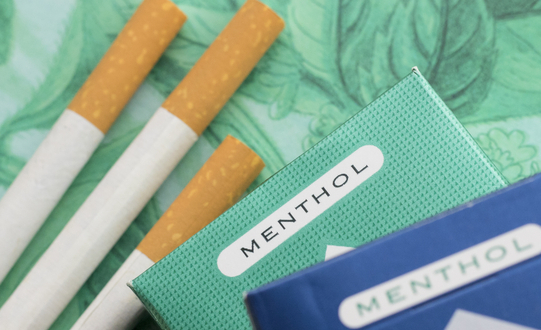[ad_1]
Facially Discriminatory Legislation and Policies Must Be Stopped
The Unintended Consequences of a Menthol Cigarette Ban to Black America
From pro-slavery laws to Jim Crow, to Prohibition, to racial profiling, to Stop-and-Frisk, history is clear: racist laws and discriminatory bans have been devastating for Black America.
Today, Law Enforcement Action Partnership (LEAP) and National Newspaper Publishers Association (NNPA) have joined together with other African-American law enforcement executives to call on you – our readers in Black communities across the nation – to see the warning signs of yet another proposed racially discriminatory law: the menthol cigarette ban.
It is a well-known fact that over 85 percent of African Americans who smoke prefer menthol cigarettes. There is no factual basis to assert that a menthol cigarette ban will stop African Americans from smoking. In fact, the unintended consequences of such a racially discriminatory ban will set the stage for more negative and more likely counterproductive interactions between law enforcement and African Americans.

While proponents argue that a menthol cigarette ban could encourage menthol cigarette smokers to quit smoking cold-turkey, another possible outcome could be extremely dangerous—the creation of an illicit market. If this happens, illegal sales of menthol cigarettes will likely be concentrated in communities of color, leading to a greater police presence, citations, fines, and arrests for selling a product that for the past 50 years has been legal.
Possible bans on menthol cigarettes are now being considered throughout the United States as add-ons to e-cigarette bans. It must be said that while FDA has deemed teen vaping an “epidemic,” there is no teen menthol cigarette epidemic. The fact is teen cigarette use has steadily been on the decline over the past decade.
Recently in New York, the mothers of Trayvon Martin and Eric Garner courageously issued a public statement warning against the consequences of a proposed menthol cigarette ban. Sybrina Fulton and Gwendolyn Carr stated, “When you ban a product sold mostly in Black communities, you must consider the reality of what will happen to that very same over-represented community in the criminal justice system.”
Law enforcement leaders like Law Enforcement Action Partnership (LEAP), National Organization of Black Law Enforcement Executives (NOBLE), Grand Council of Guardians, and National Association of Black Law Enforcement Officers (NABLEO) have stated countless times that a ban on menthol cigarettes will have unintended negative consequences, especially for African Americans.
Over the past 30 years, we have reduced tobacco consumption overall across this country by about 40 percent. And we did not do that with the criminal justice community. We did that with education, we did it with treatment, we did it from a health and educational perspective. Let’s continue with that. Let’s not do something that’s going to end up with these unintended consequences of increasing interaction between police and community members.
Major Neill Franklin (Ret.), Executive Director of the Law Enforcement Action Partnership (LEAP): “I dedicated 34 years of my life to public safety, enforcing the laws that our legislators placed before me. That’s what cops do, and we trust that those laws are well thought out, studied and based upon sound data and evidence. As we begin to mirror the days of alcohol prohibition with tobacco bans, expect the violence and corruption that comes with the illicit market and add something else, the over criminalization of the black community.”
Jiles Ship, President of the National Organization of Black Law Enforcement Executives – New Jersey (NOBLE): “Banning menthol cigarettes would be a 21st Century attempt at Prohibition, a past failure of government to restrict a previously legal product. As we learned with Prohibition, every time the government tries to ban something, it seems to cause other problems. And unfortunately, a menthol cigarette ban would be another example of government action that disproportionately disrupts the Black community.”
Charles Billips, National Chair Person of Grand Council of Guardians, “The first question I asked is how are they going to implement this ban on menthol cigarettes, knowing that a large number of Black and Brown people smoke menthol cigarettes? It would be best to educate the communities on the affect it has on our health instead of a ban enforced through Law Enforcement.”
As The Reverend Dr. Martin Luther King Jr. once prophetically said, “The time is always right to do what is right.” And the right thing to do for our families and communities and for all who stand for freedom, justice and equality is to speak out against all forms of racial discrimination and disproportionate law enforcement, as well as the systems, laws, bans and policies that perpetuate them.
We oppose the following bills in the Maryland State Legislature: Maryland House Bill HB3 and Maryland Senate SB233.
Speak out against racism. Stand up against discrimination. Let your voices be heard.
[ad_2]
Source link
